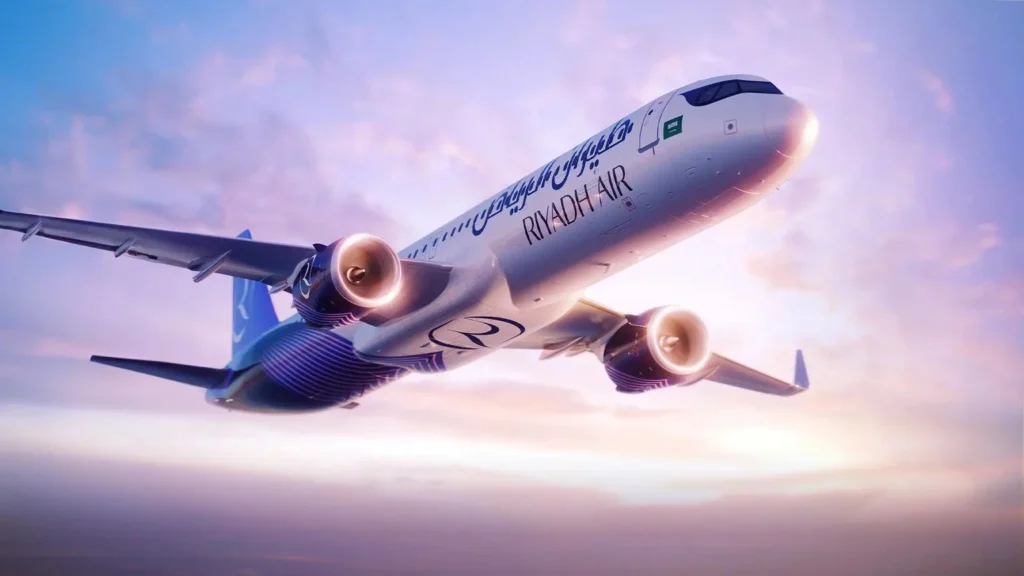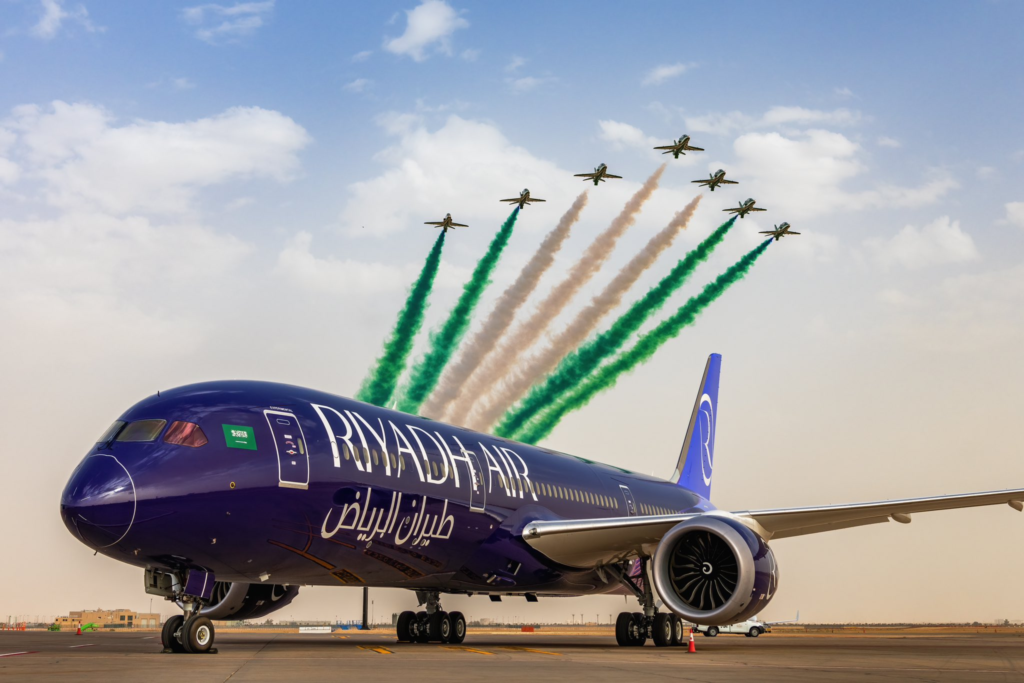RIYADH- The upcoming startup carrier, Riyadh Air (RX) CEO Tony Douglas has positioned India as a strategic priority for Saudi Arabia’s newest airline following a significant fleet expansion announcement.
The airline has placed an order for 60 Airbus A321 family jets, elevating its total aircraft commitments to 132 planes. This order complements the airline’s previous acquisition of 39 Boeing 787 Dreamliners, with options for 33 additional aircraft.

Riyadh Air India Priority
Douglas emphasized India’s market significance during an exclusive interview with Times Network at the Future Investment Initiative (FII8) forum. “India represents one of the most important markets in the world,” Douglas stated, highlighting the airline’s eagerness to serve Indian citizens.
The CEO clarified that these premium services would exclusively cater to passengers traveling from or through Riyadh, establishing the Saudi capital as a key aviation hub.
The announcement coincided with what Douglas termed a landmark moment in aviation technology. “The world’s first digital reveal of what modern aviation looks like when it comes to guest experience. A small step for man. A giant leap for us,” Douglas declared, comparing the significance to Steve Jobs’ original iPhone revelation.
The airline’s fleet expansion strategy aligns with its scheduled 2025 launch, marking Saudi Arabia’s entry into the competitive international aviation market. The deal, formalized at the Future Investment Initiative forum in Riyadh, represents a substantial investment in narrow-body aircraft capacity.
Douglas unveiled these developments during Day 2 of the three-day FII8 forum, where he detailed both the fleet expansion and the airline’s technological innovations. “Been a very, very special day for us today,” Douglas noted, underlining the dual significance of the announcements.

Three-Pillar Brand Strategy
Riyadh Air CEO Tony Douglas has revealed the airline’s distinctive three-pillar strategy positioning the carrier in the global aviation market.
The first pillar centers on “obsessional attention to detail with guest experience,” establishing customer service as a core differentiator for the Saudi carrier.
Environmental sustainability forms the second pillar, with the airline positioning itself as a “thought leader” in aviation sustainability practices.
The third pillar leverages Saudi Arabia’s unique demographic advantage as a “true digital native” market. “We’ve got a populace here where the average age is below 30. It’s got the highest iOS usage per capita in the world. It hasn’t evolved the same way in commercial aviation,” Douglas explained.
The airline’s digital strategy draws inspiration from successful technology platforms. “Think more in common with Uber, think more in common with how Amazon or Noon.com works…It goes into the shopping basket,” Douglas detailed, highlighting the airline’s modern booking approach.
Riyadh Air’s commitment to luxury reached a milestone with its groundbreaking debut at Paris Fashion Week, marking the first such appearance by an airline. Douglas emphasized this distinction: “We’re talking about full service, refined, high-quality brands because it’s the Kingdom’s new carrier.”
The CEO directed attention to the airline’s visual presentation: “I would encourage anybody, to go online and Google on Mr Internet, Riyadh in-cabin fashion, glamour, beauty, refinement.”
The absence of legacy systems enables Riyadh Air to implement innovative solutions from scratch. Douglas emphasized the airline’s focus on mobile-first functionality: “It makes it easier for people who are familiar with that phone that you’ve got in your hand.”

Codeshare with Cathay Pacific
Further, Saudi Arabia’s Public Investment Fund-backed Riyadh Air advances its expansion strategy through potential collaboration talks with Cathay Pacific Airways (CX), following its recent 60-aircraft Airbus acquisition.
Cathay Pacific recently resumed non-stop flights between Hong Kong (HKG) and Riyadh (RUH) after 7 years of hiatus.
Chief Financial Officer Adam Boukadida revealed the airlines’ discussions focus on expanding their respective route networks through possible code-sharing arrangements, enabling passengers to access both carriers’ destinations.
Boukadida, speaking to the South China Morning Post on Wednesday, emphasized that while discussions continue, specific partnership details remain under development.
These announcements emerged during the 8th annual Future Investment Initiative (FII) forum, which commenced on October 29 at the King Abdulaziz International Conference Center in Riyadh.
The forum brings together global leaders, visionary innovators, and influential investors under the theme “Infinite Horizons: Investing Today, Shaping Tomorrow.”
Stay tuned with us. Further, follow us on social media for the latest updates.
Join us on Telegram Group for the Latest Aviation Updates. Subsequently, follow us on Google News

